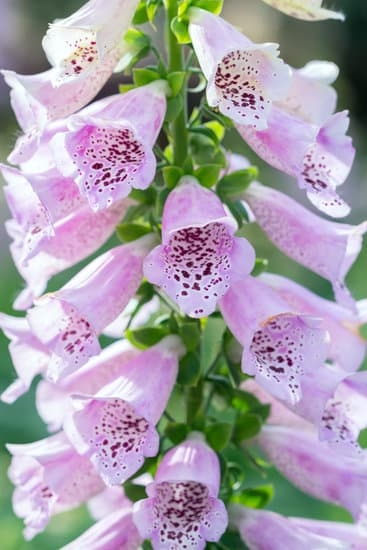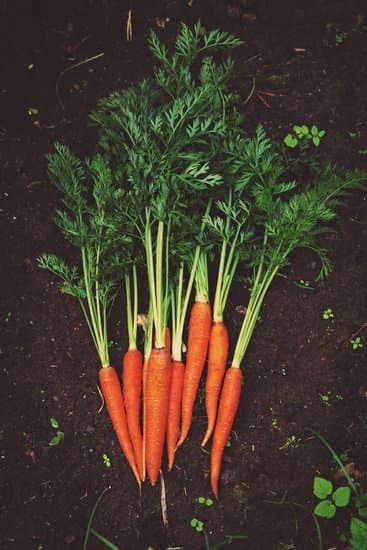Are you looking for gardening group ideas to enhance your green thumb skills and connect with like-minded individuals? Gardening groups are a wonderful way to share your love for plants, learn new techniques, and contribute to the community. Whether you are a beginner or an experienced gardener, joining a gardening group can be both enjoyable and rewarding.
Gardening groups bring together people who share a passion for cultivating plants and beautifying outdoor spaces. By participating in gardening groups, members have the opportunity to learn from each other’s experiences, exchange tips, and support one another in their gardening endeavors. These groups often organize activities such as plant swaps, garden tours, and workshops that enrich the gardening experience.
In this article, we will explore the benefits of joining a gardening group, provide tips on finding the right gardening group for you, offer ideas for engaging activities during group meetings, discuss community gardening projects, share tips for creating successful gardening group events, suggest fundraising ideas for gardening groups, and highlight online resources available for those interested in starting or joining a gardening group.
Whether you are passionate about flowers or vegetables, landscaping or urban gardening, there is a perfect gardening group waiting for you.
Benefits of Joining a Gardening Group
When it comes to gardening, joining a gardening group can be incredibly beneficial. Not only does it provide an opportunity to socialize and connect with like-minded individuals, but it also offers a wealth of knowledge and support. Here are some key benefits of joining a gardening group:
1. Learning from experienced gardeners: One of the greatest advantages of being part of a gardening group is the opportunity to learn from experienced gardeners. Whether you’re a beginner or have been gardening for years, there’s always something new to discover. Members can share their tips, tricks, and techniques, providing valuable insights that can help improve your own gardening skills.
2. Access to resources and tools: Gardening groups often have access to communal resources and tools that members can use. This can include things like shared equipment, seeds, plants, and even a designated community garden space. By pooling resources together, members can save money and have access to items they may not be able to afford on their own.
3. Support and encouragement: Gardening can sometimes be challenging, especially for beginners or those facing specific issues with their plants or garden space. Being part of a gardening group means having a community of individuals who can offer support and encouragement when needed. Whether it’s troubleshooting plant problems or celebrating successful harvests, having a support system in place can make the gardening experience more enjoyable.
Overall, being part of a gardening group provides numerous benefits that are not only helpful for individual members but also contribute to the overall success and enjoyment of the group as a whole.
To maximize these benefits, here are some ideas for activities that can be incorporated into regular gardening group meetings:
– Plant swaps: Members bring excess plants or seeds from their own gardens to exchange with others.
– Workshops: Organize workshops on topics such as composting, pest control, or organic gardening methods led by experts within the group or from outside sources.
– Garden tours: Visit each other’s gardens to share ideas and inspiration while fostering camaraderie within the group.
Finding the Right Gardening Group for You
Joining a gardening group can be a rewarding experience for anyone with a green thumb or an interest in learning about gardening. However, finding the right gardening group for you is essential to ensure that you get the most out of your membership. There are several factors to consider when looking for the perfect gardening group, including location, size, and focus.
One of the first things to consider when finding the right gardening group for you is the location. You’ll want to find a group that meets close to where you live or work, so it’s convenient for you to attend meetings and events. Additionally, consider the size of the group. Some people prefer smaller, more intimate groups where they can form closer connections with fellow members, while others may thrive in larger groups with more diverse perspectives.
Another important factor to consider when choosing a gardening group is its focus. Some groups may be geared towards urban gardening, while others may focus on organic gardening practices or community projects. Consider what interests you most about gardening and look for a group that aligns with your passions and goals.
Once you’ve narrowed down your options based on location, size, and focus, it’s a good idea to attend a meeting or event as a guest before committing to joining the group. This will give you a feel for the group dynamics and activities they offer, helping you make an informed decision about whether it’s the right fit for you.
| Factor | Consideration |
|---|---|
| Location | Close proximity to home or work |
| Size | Small vs large group dynamics |
| Focus | Urban gardening, organic practices, community projects |
Activities for Gardening Group Meetings
Garden Tours
One engaging activity for gardening group meetings is to organize garden tours. This can be done by visiting the gardens of different members or arranging visits to local botanical gardens or nurseries. Garden tours not only allow members to showcase their own gardens and share gardening tips, but also provide an opportunity for everyone to gain inspiration and learn new techniques from each other.
Workshops and Demonstrations
Another great idea for gardening group meetings is to hold workshops and demonstrations on various gardening topics. Members can take turns leading these sessions on anything from composting and container gardening, to flower arranging and vegetable preservation. Having hands-on learning opportunities will make the meetings both educational and interactive for everyone involved.
Gardening Challenges
To add a fun element to your gardening group meetings, consider hosting gardening challenges. These could involve things like having a “biggest harvest” competition, a “best garden design” contest, or a “most creative upcycling” challenge. Not only do these activities encourage friendly competition among members, but they also inspire creativity and motivation in maintaining their gardens.
By incorporating these activities into your gardening group meetings, you can create an environment that fosters learning, collaboration, and camaraderie among fellow garden enthusiasts. Remember that the key is to keep the activities diverse and engaging so that members continue to feel enthusiastic about participating in the group.
Community Gardening Projects
Gardening groups are not only a great way to connect with fellow gardening enthusiasts, but they also provide an excellent opportunity to give back to the community through various gardening projects. Here are some ideas for community gardening projects that your gardening group can take on:
- Creating and maintaining a community garden: Work together with your gardening group to plan, plant, and maintain a community garden in a public space such as a park or school. This project not only beautifies the area but also provides fresh produce for the local community.
- Beautifying public spaces: Collaborate with local authorities to identify areas in need of beautification, such as vacant lots or roadside areas. Your group can then work together to plant flowers, shrubs, and trees to enhance these spaces.
- Educational initiatives: Host workshops or classes for the community on topics such as sustainable gardening practices, organic gardening, or plant care. This not only benefits the local community but also helps spread awareness about the importance of environmental conservation.
By taking on these community gardening projects, your gardening group can make a meaningful impact while fostering a sense of camaraderie among its members. Additionally, these projects provide opportunities for skill-building and personal development within the group.
Remember that when planning community gardening projects, it’s essential to involve local stakeholders and obtain any necessary permits or permissions. Working closely with the community ensures that your projects align with their needs and contribute positively to the neighborhood.
Creating a Successful Gardening Group Event
Theme and Purpose
The first step in creating a successful gardening group event is to determine the theme and purpose. Are you looking to educate members about organic gardening practices? Or perhaps you want to showcase different types of native plants in your region? By establishing a clear theme and purpose, you can tailor the event activities to align with the goals of your gardening group.
Venue and Logistics
Once you have established the theme and purpose of the event, it’s important to secure an appropriate venue that can accommodate the activities you have planned. Consider factors such as space for workshops or demonstrations, access to water sources for plant care activities, and parking for attendees. Additionally, don’t forget to consider logistical needs such as tables, chairs, signage, and any necessary permits or permissions for hosting the event.
Engaging Activities
One of the keys to a successful gardening group event is providing engaging activities that will interest and delight members. Consider organizing hands-on workshops on topics like composting, seed starting, or flower arranging. You could also schedule garden walks or tours to showcase different local gardens or nurseries. Another idea is to invite guest speakers who are experts in horticulture or environmental conservation to provide educational presentations.
By focusing on these key areas – theme and purpose, venue and logistics, engaging activities – you can ensure that your gardening group event is not only well-attended but also leaves a lasting impact on all participants. With thoughtful planning and execution, your event will contribute towards strengthening the bond within your gardening community as well as provide valuable knowledge sharing opportunities among members.
Gardening Group Fundraising Ideas
Gardening groups often need funds to support their projects and activities, such as buying plants, seeds, and gardening tools. Fundraising is an essential part of keeping a gardening group thriving. Whether you’re a small community garden or a large gardening club, there are many creative ways to raise money for your group.
One popular fundraising idea for gardening groups is hosting a plant sale. Members can propagate their own plants and sell them to the community. This not only raises funds but also promotes the love of gardening to others. Another great idea is organizing a garden tour where people pay a fee to visit the members’ gardens. This not only raises money but also provides inspiration and networking opportunities for gardeners in the community.
Additionally, holding workshops and classes about gardening-related topics can also be a successful fundraiser for gardening groups. Members can teach classes on topics such as composting, container gardening, or flower arranging. People are often willing to pay for educational opportunities that will help them improve their own gardens. By offering valuable knowledge, your group can raise money while also providing benefit to the community.
| Fundraising Idea | Benefits |
|---|---|
| Plant Sale | Raising funds and promoting gardening to the community |
| Garden Tour | Raising funds and providing inspiration for local gardeners |
| Workshops/Classes | Raising funds while providing valuable knowledge to the community |
Online Resources for Gardening Groups
For those who are passionate about gardening and looking to connect with like-minded individuals, joining a gardening group could be a great fit. But in today’s digital age, finding the right gardening group can be as simple as doing a quick online search. There are numerous online resources available that can help you find the perfect gardening group for you.
One of the most popular platforms for finding gardening groups is Meetup.com. This website allows users to search for local gardening groups based on their location and interests. Whether you’re interested in urban gardening, organic gardening, or community garden projects, Meetup.com has a wide range of options to choose from. Additionally, Facebook has various groups dedicated to all things gardening, where members can share tips, photos, and even organize local meetups.
Another useful online resource for gardening groups is GardenWeb, which provides a forum for gardeners to connect and discuss various topics related to gardening. From plant care tips to troubleshooting common garden problems, GardenWeb offers a wealth of knowledge and support from experienced gardeners.
In addition to these platforms, many local horticultural societies also have websites or social media pages where you can find information about upcoming events and meetings. These resources make it easier than ever to find the right gardening group for you and connect with others who share your passion for plants and outdoor spaces.
Conclusion
Gardening is not only a solitary activity, but it can also be a wonderful communal experience when shared with a group of like-minded individuals. Joining a gardening group can bring about numerous benefits, from learning new gardening techniques to forming lasting friendships. The joy of gardening with a group lies in the sense of camaraderie and shared passion for plants and the environment.
Finding the right gardening group for you may take some effort, but the rewards are well worth it. Whether you are interested in community gardening projects or simply want to exchange gardening tips and ideas, there’s a group out there for everyone. You can start by researching local gardening groups in your area and attending their meetings or events to see if they align with your interests and values.
Once you have found the right gardening group for you, the possibilities for activities are endless. From collaborative garden projects to engaging workshops and fun fundraising events, there are countless ways to enjoy the company of fellow garden enthusiasts. Building a strong sense of community within your gardening group will not only enhance your own gardening experience but also contribute positively to the broader community.
So why not consider joining or even starting a gardening group today? The joy of sharing your love for gardening with others is truly unparalleled.

Welcome to my gardening blog! I am passionate about plants and enjoy sharing my knowledge and experiences with others. In this blog, I will write about everything related to gardening, from tips on how to get started to updates on my own garden projects.





